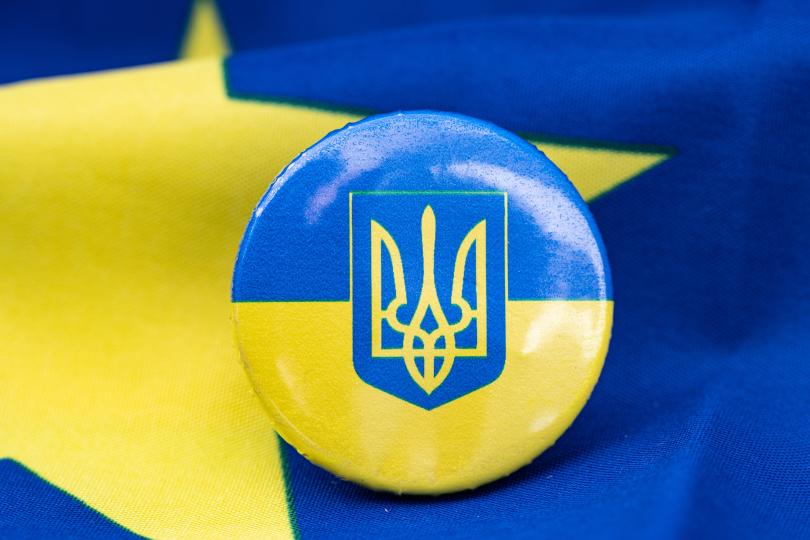
Ukraine and the ETF – an enduring partnership for reform and development in education and skills
Over more than two decades, the European Training Foundation (ETF) has been working closely with officials, teachers, civic bodies and stakeholders in the education, skills and labour market, to improve vocational training. Today, even as war ravages the country, the ETF continues to support development projects that look beyond conflict and towards the rebuilding of the country and its economy post-war.
As Georgios Zisimos, ETF Head of Policy Advice and EU Programming Unit, who has worked closely with Ukraine over the years, notes:
“The ETF is well placed to work with Ukraine because of its experience over the past 20 years and has built up relations with the official authorities and stakeholders on the ground.”
In this retrospective, we trace the development of ETF activities in Ukraine from a policy and strategic point of view. Examples of some of the human stories, demonstrating the real change the ETF’s partnership with Ukraine has made in people’s lives over the years, are provided in extracts taken from our website and publications such as our former magazine Live&Learn – Seeing through the fog of war: How the Torino Process is helping VET specialists in conflict-torn parts of Ukraine plan for the future.
Early days: 2005–16
In the early days, the ETF’s work in Ukraine had more of a regional profile, with conferences such as the one that took place in late November/early December 2005 bringing together senior vocational education and training (VET) managers from across Ukraine, Russia and the Baltic states, to begin rebuilding relationships ruptured by the collapse of the Soviet Union more than a decade before.
Issues facing VET managers and officials in those days were sometimes parochial, and often quite unusual from an EU perspective: the conference threw up issues that included the challenges of reviving vocational schools occupied by squatters in Russia’s Kaliningrad exclave, and a proposal to open up Belarus’ Belovezheskaya state park – and ancient and pristine region of forest and marsh where wild bison still roam – to eco-tourism.
A cross-border programme, funded by Tacis and Interreg gave training organisations “an opportunity to be more involved, enabling the promotion of shared values, skills and experience”, Xavier Matheu de Cortada, then ETF country manager for Ukraine, Eastern Europe and Central Asia, noted.
More familiar ETF interventions to help streamline and strengthen skills development were also evident: qualification frameworks were already on the agenda, as efforts to harmonise regional training systems emerged.
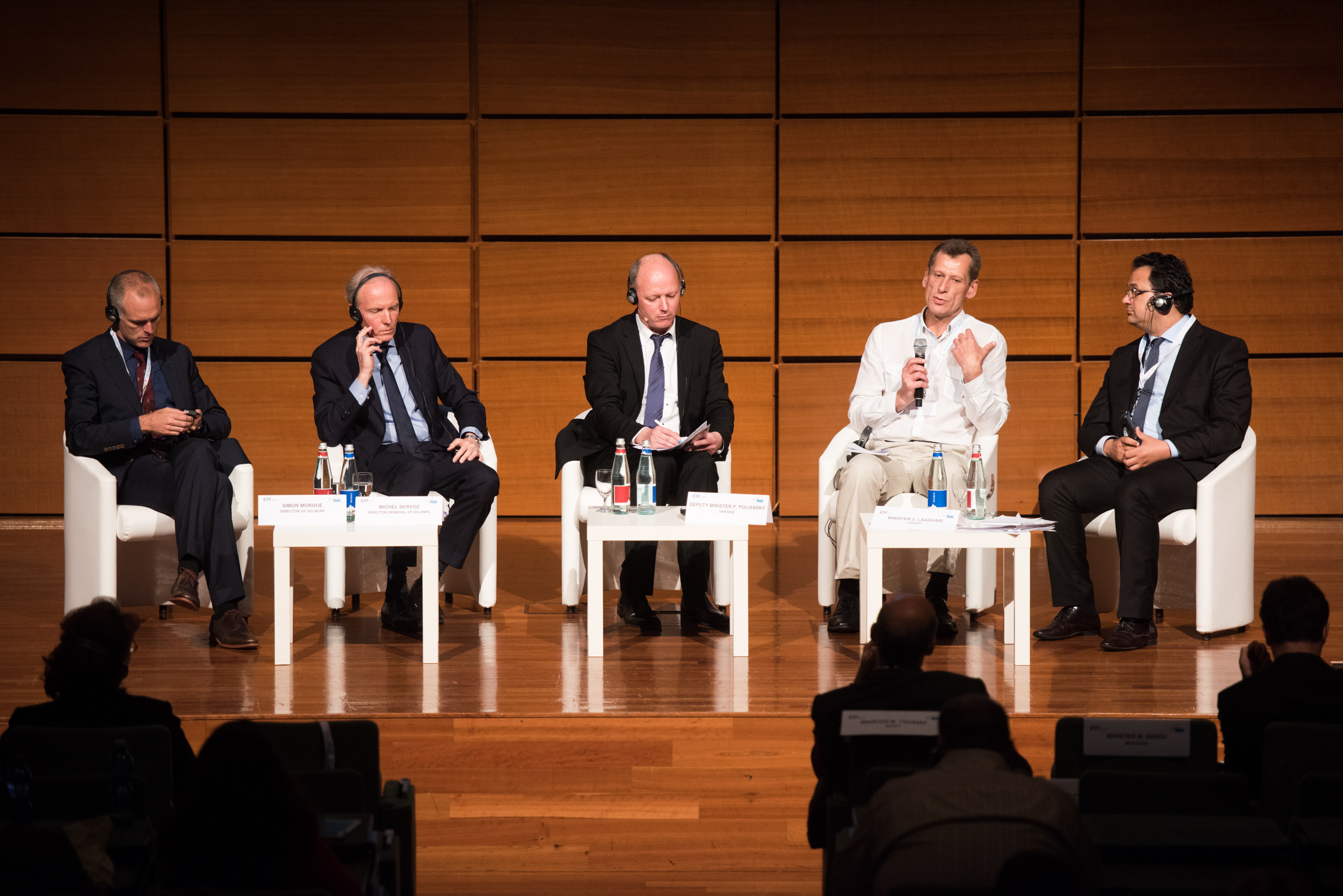
2016
It would be some years before those early seeds bore fruit: by 2016 another conference in Kyiv was urging those involved in vocational standards and qualifications frameworks to become more involved in the ETF’s online portal, the Qualifications Platform.
Anatolii Garmash, now an ETF senior specialist in qualification systems, but then Deputy Director, Labour Potential Development and Corporate Social Responsibility Department, Employers Confederation, Ukraine, noted that:
[The Qualifications Platform is a very good resource but its scope needs to be wider to] “attract readers and contributors from a broader audience that is involved in qualifications work. Through social media, such as a Facebook group, we can bring in others from the world of vocational training and higher education and create cross links within other professional communities."
Garmash, who had been involved in the Ukrainian national qualifications framework (NFQ) since its launch in 2008, stressed the importance of benchmarking national developments with what was happening elsewhere. And Ukraine’s Ministry of Education was firmly onboard – urging the adoption of new standards and qualifications as key steps forward.
A key ETF initiative which found fertile soil in Ukraine was the Torino Process – the flagship programme that provided tools to analyse and monitor VET systems. Ukrainian VET teachers, managers and ministers were so keen about the process that they not only produced a national report, but 25 regional reports in 2016.
At an ETF conference in Kyiv in September 2016, ETF former Country Manager for Ukraine, Arjen Vos, praised the level of commitment education officials and vocational school managers had shown across the country.
“The level of detail [in the regional reports] is unique in a country participating in the Torino Process,” he noted.
At the time, Ukraine was decentralising its regional and local educational bodies, which were taking more responsibility for managing provider networks.
“There is a process of reducing the number of schools to improve the quality of provision; preparing these reports is one way of getting ready for these reforms.”
The benefits of embracing the Torino Process at a regional level had been seen during a series of regional conferences around Ukraine earlier in the year. In June, at one of these meetings in Dnipropetrovsk (as Dnipro was then known), Mykola Kuchynskyi, Head of the Vocational Education Department at the Ukrainian Ministry of Education and Science, noted:
“These 25 regional reports provide a totally new vision to the Ministry of Education. This is the first time in many years we have received a holistic picture of the regional VET system.”
Such was the importance of the regional reporting for the Torino Process in Ukraine, that in November 2016, an ETF team travelled to Kyiv to make a short film about it, including its value in helping those who had fled fighting in the east to re-establish VET management in safer areas.
As Ukraine moved closer toward aligning with the EU – part of a process propelled after the Maidan protests of 2013/14 that precipitated the end of the Yanukovych presidency – the role the Torino Process could take in developing legislation for decentralising Ukrainian VET became more prominent.
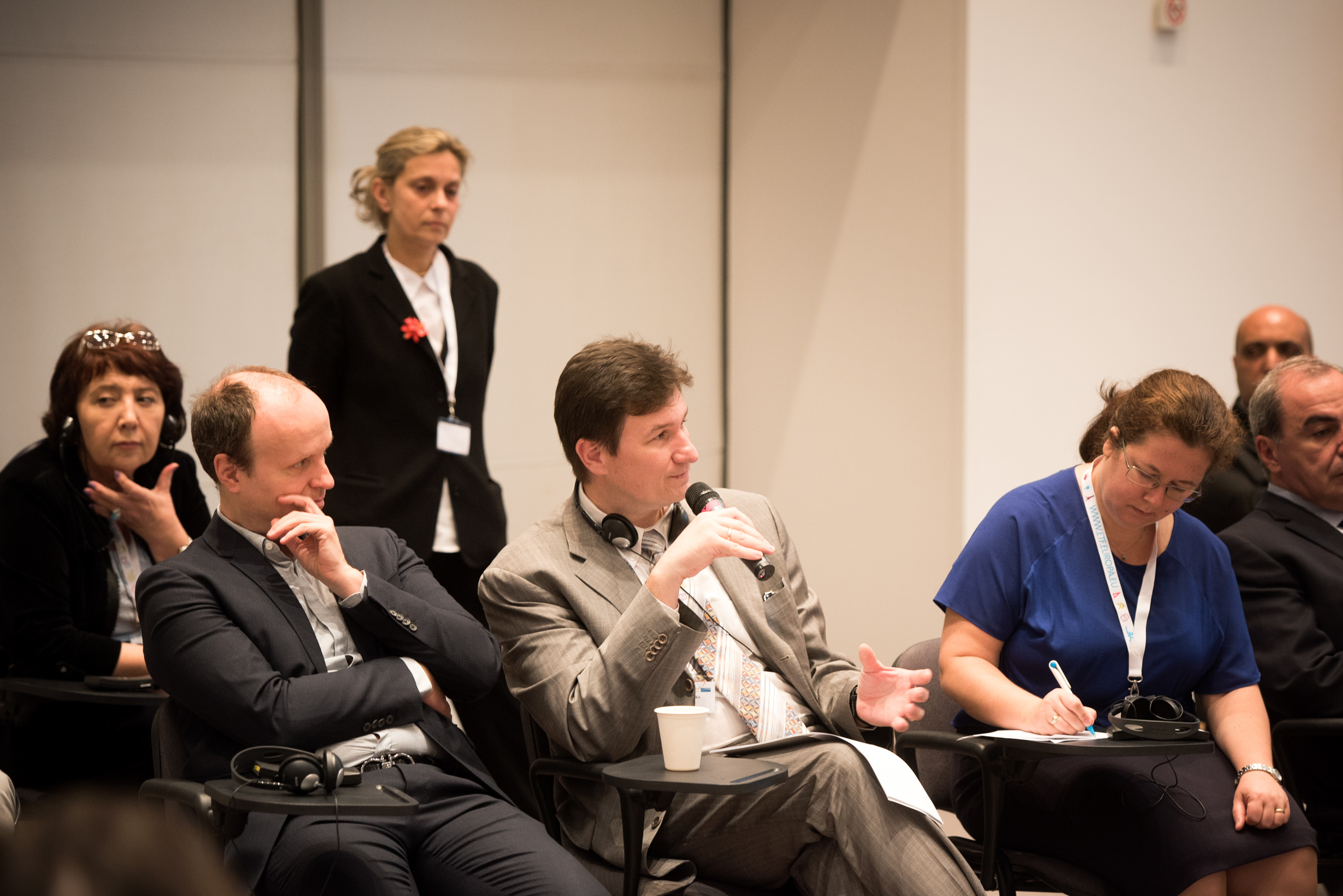
2017
At a conference in Kyiv in April 2017, Hugues Mingarelli, the EU’s then ambassador to the country, pledged that the EU would “mobilise all its resources” to support the VET reform in Ukraine, at a time when the EU's priority in the country was to implement its Association Agreement and Deep and Comprehensive Trade Agreement and to gradually absorb its economy into the single market.
The ETF was a key part of this process: a Green Paper on decentralising VET in Ukraine was developed in close cooperation with stakeholders across the sector in all 25 regions, supported by ETF experts. The Green Paper drew upon evidence and consultations from the Torino Process reports.
It was a pivotal point, as a Live&Learn article at the time pointed out:
Skills training in Ukraine stands at a threshold of historic change that holds the potential to bring profound social and economic benefits to the eastern European country – if it can get far-reaching reforms right.
With a civil war simmering in its eastern provinces, where Russian-backed rebels continue to fight Ukrainian government forces following the loss of Crimea to Russian seizure in the wake of the revolution, supporting economic development to promote stability in the largest territory on the EU's eastern border is a redline for Brussels. Margareta Nikolovska, then ETF Country Manager for Ukraine, noted that the scale of the challenge of shifting a system that was then still largely mired in old Soviet-era practices could not be underestimated.
“VET needs to be integrated holistically within the country context as the reforms mean there will be huge challenges. A huge shift is required. I am not convinced that we have reached that level of understanding.”
Key areas highlighted in the Green Paper included:
- balancing decision-making between national, regional and local levels;
- transferring the ownership of VET institute buildings to the region;
- introducing measures to encourage public-private partnerships.
“Ukraine has no time to waste,” Nikolovska added. “It really needs to act. It is extremely important that key stakeholders use EU member state experience.”
2019–20
Ukraine’s experience of regional reporting was to be a crucial input in the fifth round of the Torino Process: 2019–20. At a conference in Turin in early 2018, ETF former Director Cesare Onestini outlined an expansion to include an increased focus on regional VET analysis.
“When we move to the sub-national level, we are really talking about implementation; about making things happen, trying to find ways in which we translate the bigger ideas we have in the country and internationally to see what it means in practice,” he said.
Ukraine’s experience in the Torino Process and regional reporting were crucial steps towards bringing it into a new EU and ETF focus on encouraging smaller companies to engage with work-based learning. The country's fresh knowledge of the strengths and weaknesses of its VET system gained through the Torino Process made it an ideal participant in this process.
Work-based learning came under the spotlight at an ETF event in October 2019: in Ukraine’s elegant old Hapsburg-era city of Lviv where the conference sought to seed a new approach in Ukraine.
Didier Gelibert, an ETF specialist on private sector engagement in VET, said that the relationship between small companies and employment was a key issue:
“Small SMEs are where most employment is. This is where demand is.”
Kirsi Lindroos, team leader for the support group Ukraine at the European Commission's DG NEAR (European Neighbourhood Policy and Enlargement Negotiations), said:
“If well implemented, work-based learning can significantly increase the attractiveness of VET among young people. It can help students improve academically, increase motivation and the relationship of schools with the community. And employers are able to hire better employees and reduce their overall training costs.”
Examples of work-based learning in small companies in Lviv were already evident, as a Live&Learn story highlighted at the time.
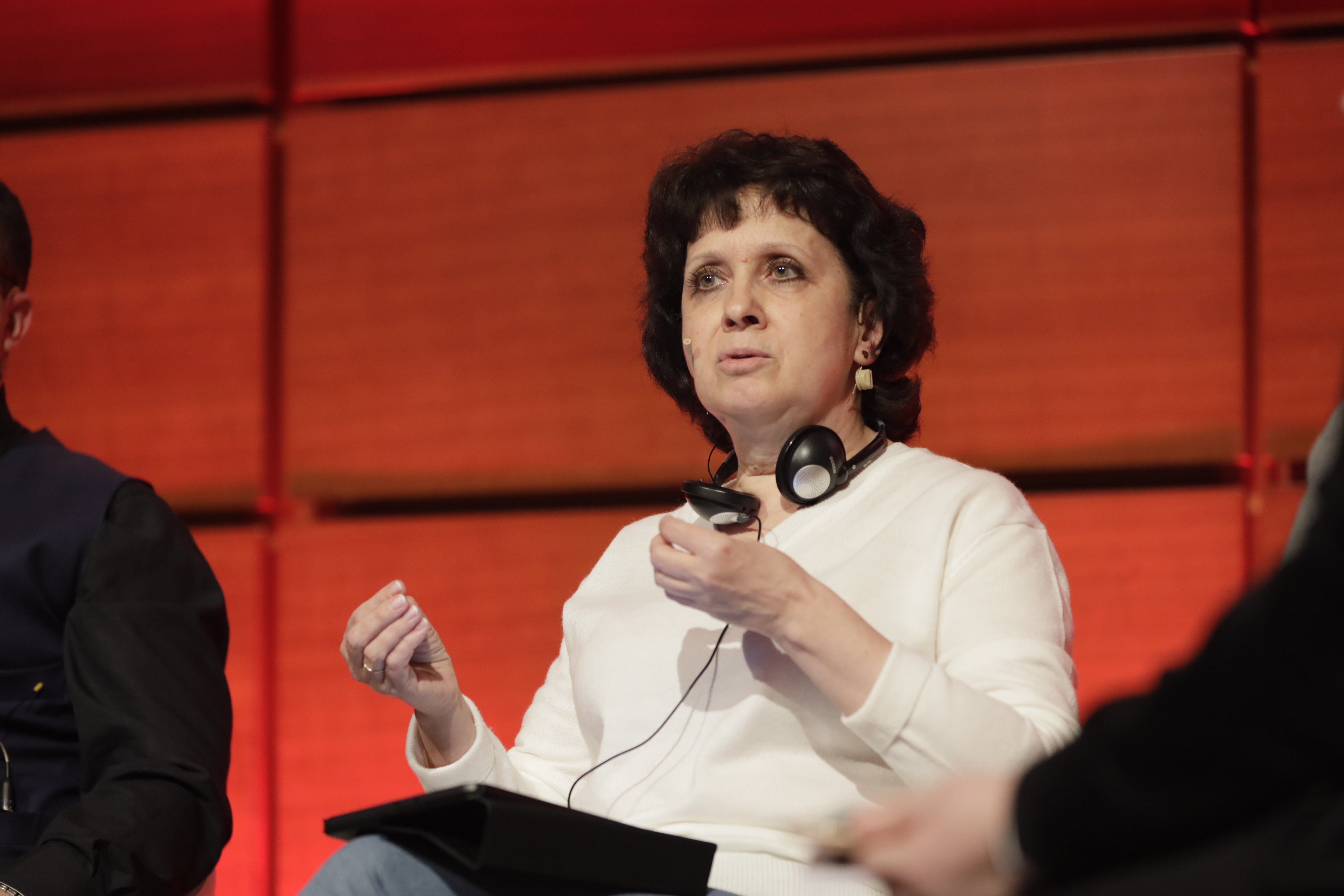
2020 and Covid-19 pandemic
When the global pandemic disrupted our lives in 2020, the ETF’ activities supporting the reform and development of skills training in Ukraine did not end. Like all other social activities it simply went online.
A conference reviewing progress in the fifth round of the Torino Process, originally scheduled to take place in Minsk in March 2020, was eventually held online in September that year. By then, it was clear that the pandemic would fundamentally change education, heralding a shift to “flexible, adaptable responses to fast moving events” as conference delegates put it.
The sudden shift to online learning presented challenges for the more practical courses in the VET system – with innovative responses including students videoing scaled-down practical projects at home to demonstrate their skills.
Ukraine’s experience in shifting to online teaching would prove of critical importance to maintaining continuity in education when the even more disruptive impact of Russia’s invasion of February 2022 were felt – forcing millions of Ukrainians to flee the country.
Lessons from the fifth round of the Torino Process had demonstrated the need to “focus on developing competences, rather than knowledge reproduction,” Arjen Deij, an ETF senior specialist on qualifications, said.
“We want students to be able to act, to deal with situations they have not faced during their training.”
As the global pandemic gradually began to recede, by June 2021 Ukrainian initiatives were back in the news as the finalists of the ETF’s Green Skills Award were announced.
Backed by Germany’s overseas aid agency, GIZ, a Ukrainian project to increase energy efficiency via “energy innovative hubs” in vocational schools and universities was among the projects that caught the eye of judges in the annual competition that promotes innovation in skills development.
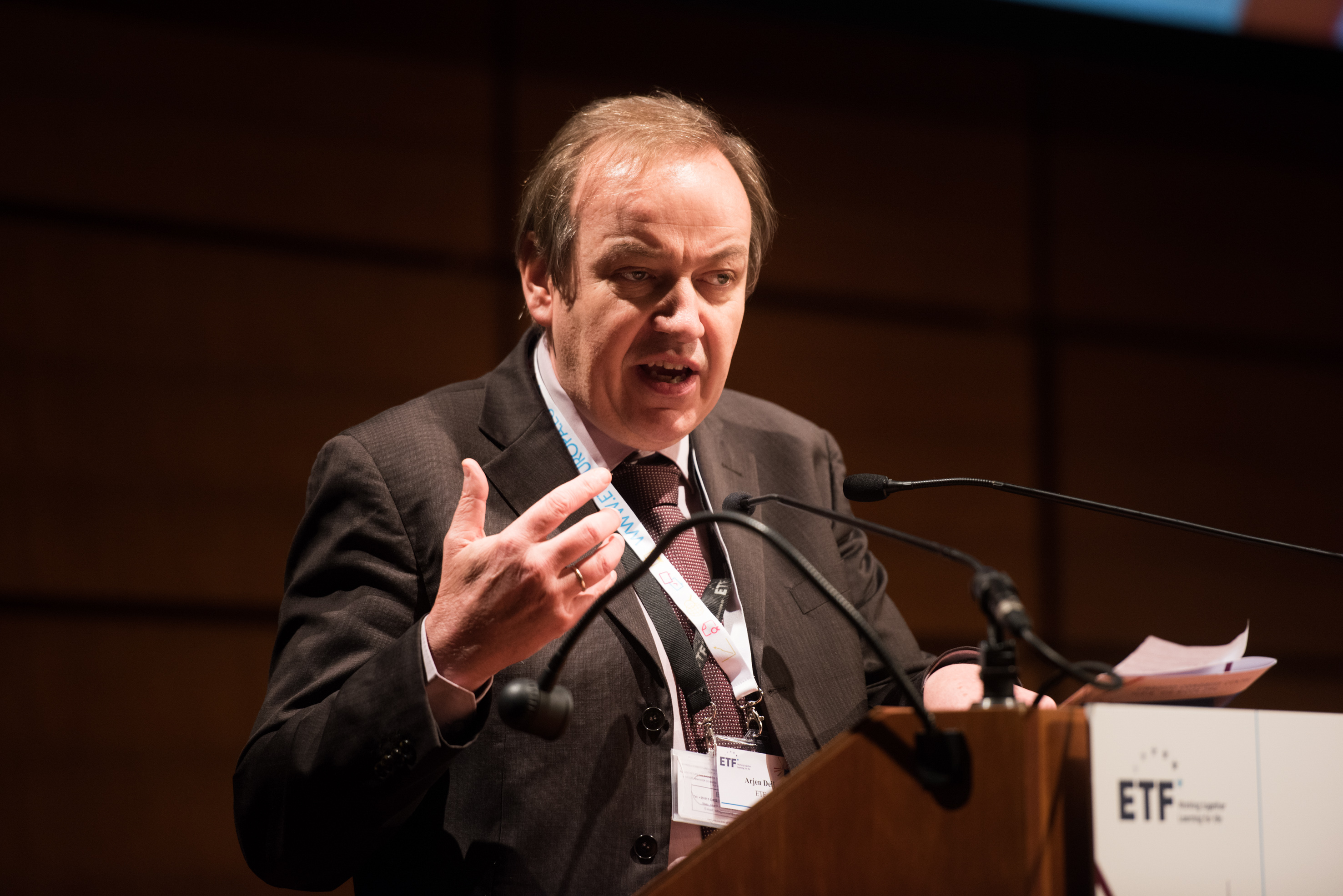
2022, Russian aggression
It is a project that Russia’s war on Ukraine since 2022 – where civilian energy infrastructure is deliberately targeted – has only made more relevant to the eventual post-war rebuilding of Ukraine.
Another area that was highlighted that year was the development of ‘smart specialisation’ in Ukrainian VET. It aimed to boost jobs and growth by enabling individual regions to determine their own strengths, and develop their own competitive advantages. In Rivne, in central Ukraine, that strength was to be found in woodworking, carpentry and furniture making, which then accounted for nearly 6% of all jobs in the region.
War may have disrupted education and training in Ukraine, but plans such as these will prove vital to the country’s reconstruction in the future.
The fact that the ETF has been engaged with Ukraine during all these tumultuous years puts it in a very strong position to continue assisting the development of Ukraine’s education, skills and employment markets in the future.
As Georgios Zisimos points out:
"The ETF has been working in Ukraine for many years and we’ve seen big developments: the development of their qualifications system, discussions about decentralisation and optimisation of VET. We’ve seen the use of the Torino Process as a policy tool that can drive polices, the development of a work-based learning system, and we've seen the green sustainability agenda growing in the VET system.”
After Russia’s invasion the ETF was able to switch to supporting an emergency package to help internally displaced people find jobs, doing this through the support of their qualifications and through online courses leading to micro-credentials.
“The emergency continues, so this work goes on. We have expanded the number of online VET courses that we provide – and now we have eight micro-credential courses for use within Ukraine, delivered in partnership with other organisations and countries.”
And support for Ukraine’s candidature for EU membership has not been shelved because of the war:
“The ETF is supporting Ukraine to build up its capacity for accession; we also provide to the EU information and support for their accession chapters 26 (education) and 19 (labour market).”
“This year,” Zisimos adds, “the ETF has started working to support Ukraine further in recovery and reconstruction in the short and long term – we do that in cooperation with the EU under the Ukraine facility (instrument for managing funds), and Ukraine Plan (priority for actions that will be funded, designed by the Ukrainians).”
After more than 20 years of engagement with Ukraine, the ETF is in a good position to continue supporting the country develop its education, skills and labour markets in the future.
#WeStandWithUkraine
Did you like this article? If you would like to be notified when new content like this is published, subscribe to receive our email alerts.